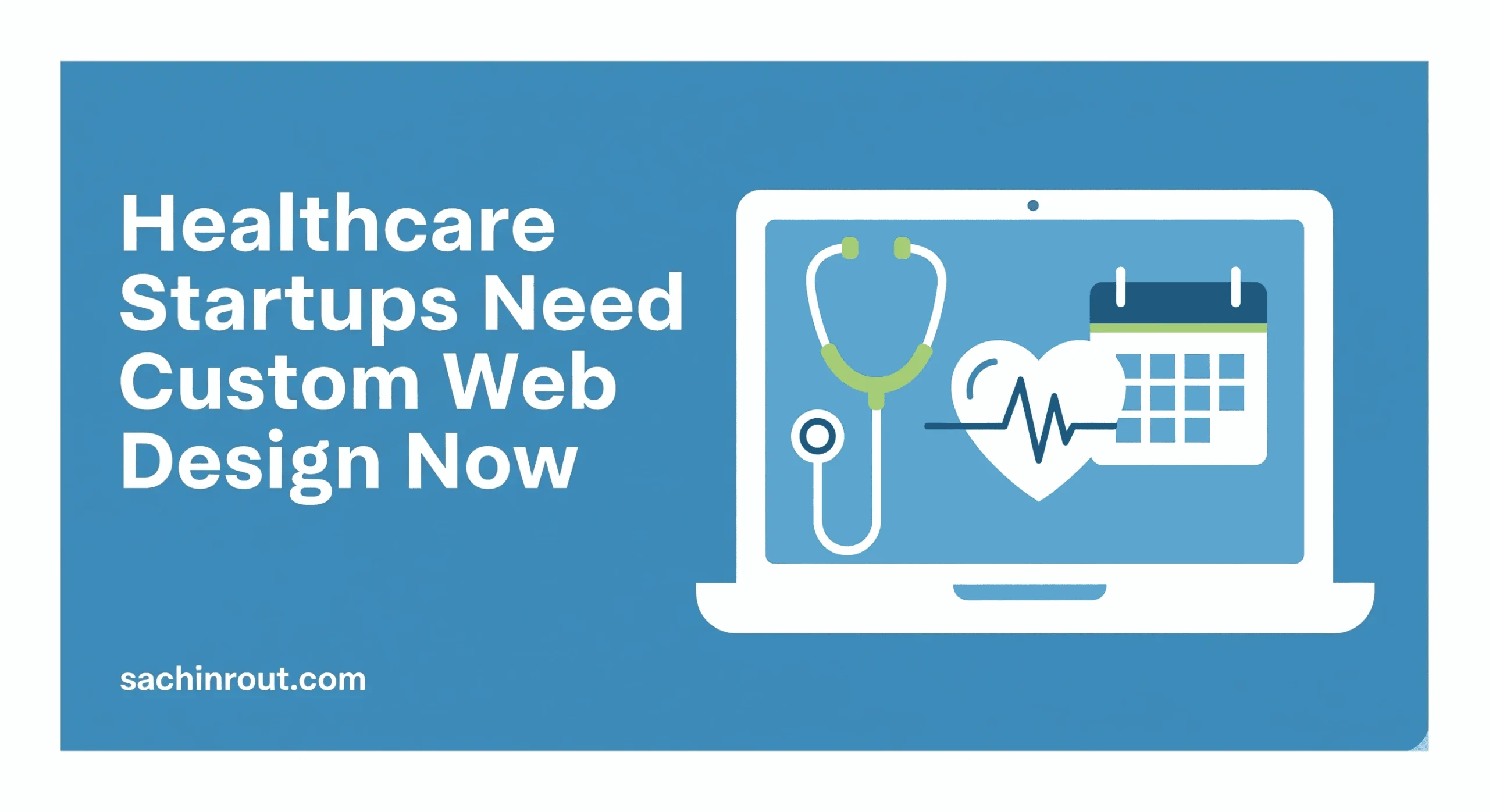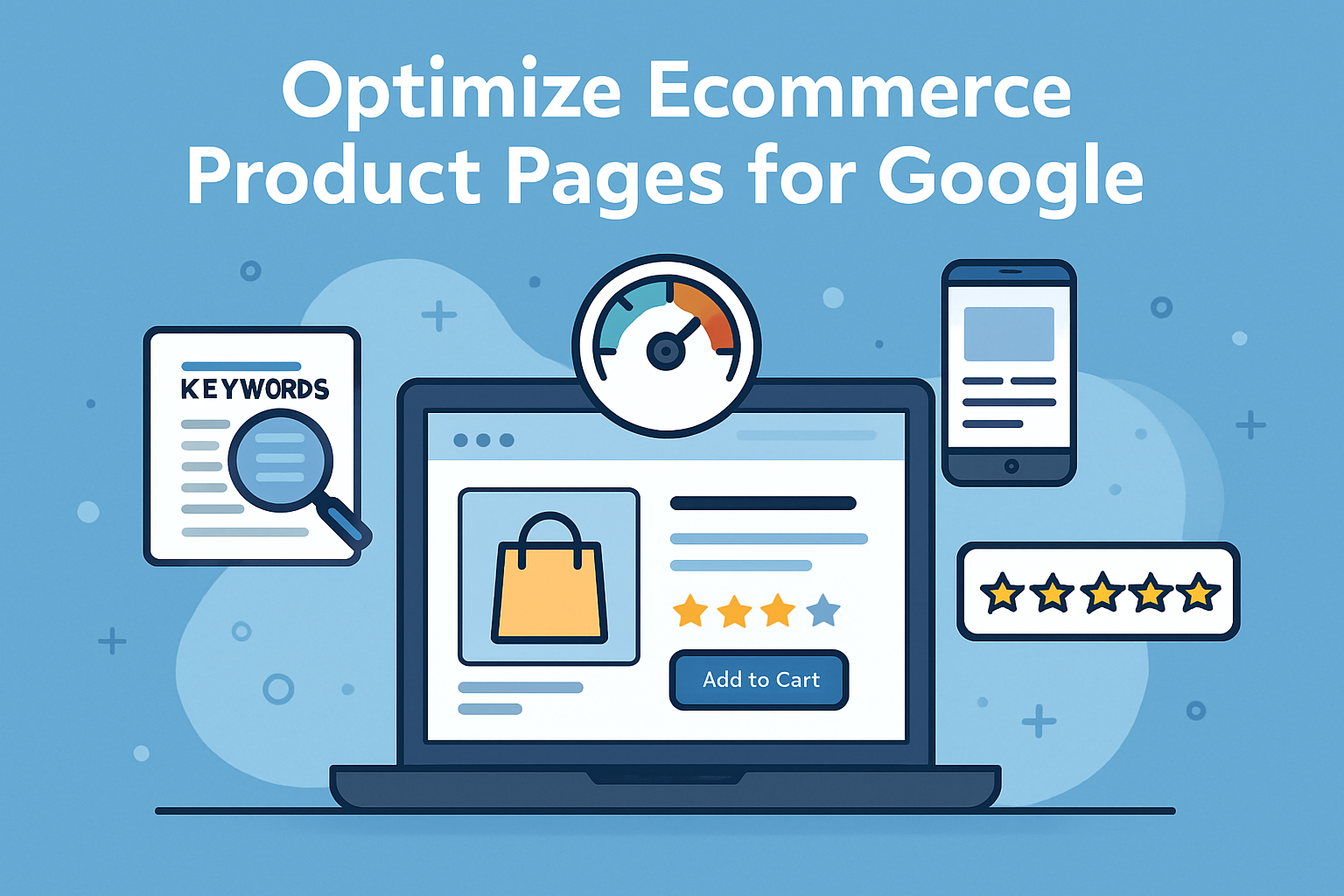The healthcare industry is undergoing a massive digital transformation. Patients today no longer rely solely on word-of-mouth referrals or physical visits to healthcare providers—they turn to Google searches, mobile apps, and websites for answers, appointments, and trust. For healthcare startups, this digital shift presents both an opportunity and a challenge.
If you run or plan to launch a healthcare startup, you must realize one critical truth: your website is not just a digital brochure—it’s your first impression, your credibility check, and your growth engine. That’s why custom web design and optimization are no longer optional; they’re business essentials.
In this article, we’ll break down why healthcare startups need custom websites, the benefits of optimization, real-world insights, and practical strategies to gain patient trust while staying ahead of the competition.
The Digital Landscape of Healthcare in 2025
- 94% of patients research healthcare providers online before booking an appointment.
- 77% of patients use Google search before scheduling a treatment or consultation.
- 70% of millennials prefer digital healthcare experiences over phone calls.
(Source: Accenture Health Study, Google Healthcare Trends)
This means if your healthcare startup doesn’t have a strong, optimized online presence, you’re practically invisible to your target patients. A generic website template won’t cut it—patients expect professionalism, clarity, and trustworthiness.
Why Custom Web Design is Critical for Healthcare Startups
1. Building Trust and Credibility
Healthcare is a sensitive field where trust is everything. A poorly designed or outdated website creates doubt in a patient’s mind.
A custom healthcare website ensures:
- Professional look aligned with your brand identity.
- Patient-friendly design with clear navigation.
- Secure handling of sensitive information (HIPAA/GDPR compliance).
2. Tailored to Patient Needs
Unlike eCommerce or SaaS websites, healthcare sites must focus on patient experience:
- Easy appointment booking.
- Symptom checkers or chatbots.
- Educational blogs or resources.
- Telehealth integration.
A custom site allows you to personalize these experiences instead of being stuck with one-size-fits-all templates.
3. Mobile-First Design
Over 65% of healthcare searches happen on mobile devices. A custom design ensures responsive layouts, faster load times, and user-friendly experiences across devices.
4. Standing Out in a Competitive Market
Healthcare startups face stiff competition from established hospitals and telehealth giants. A custom design helps you differentiate your brand, highlight your unique value, and connect with patients in a meaningful way.
Why Optimization is Just as Important as Design
Even the most beautiful website is useless if patients can’t find it online. That’s where optimization comes in.
1. Search Engine Optimization (SEO)
- Healthcare keywords like “telemedicine near me,” “dermatologist online consultation,” or “healthcare startup services” are highly competitive.
- Without SEO, your startup won’t rank on Google, and patients will choose competitors.
- On-page SEO, content optimization, schema markup, and local SEO are essential for visibility.
2. Website Speed and Performance
Patients won’t wait for a slow site. In fact, a 1-second delay in page load can reduce conversions by 20% (Google).
Optimization ensures faster performance, reducing bounce rates and improving patient trust.
3. Conversion Rate Optimization (CRO)
It’s not just about traffic; it’s about turning visitors into patients. CRO strategies include:
- Clear CTAs like “Book an Appointment Now.”
- Simplified forms.
- Engaging visuals and patient success stories.
4. Data Security and Compliance
With sensitive patient data, security optimization is critical. SSL certificates, secure hosting, HIPAA compliance, and data encryption are non-negotiable.
Real-World Example: The Power of Custom Healthcare Web Design
Imagine two startups offering online therapy:
- Startup A uses a generic template. The design looks outdated, booking forms are clunky, and load time is 5 seconds. Patients drop off after the first click.
- Startup B invests in a custom, optimized website. Patients can book therapy sessions in two clicks, trust signals (reviews, certifications, SSL) are visible, and the site loads in under 2 seconds. Startup B’s patient bookings increase by 300% within 6 months.
The difference? Custom web design and optimization.
Key Features Every Healthcare Startup Website Must Have
- Clear Navigation & User-Friendly Design – Patients should find services in under 3 clicks.
- Fast, Mobile-Friendly Performance – Google prioritizes speed and mobile optimization.
- Appointment Scheduling System – Automated booking saves time for both patients and staff.
- Educational Blog/Resources – Share valuable healthcare content to build authority.
- Telehealth/Video Consultation Integration – A must in the post-COVID era.
- Patient Reviews and Testimonials – Social proof builds trust instantly.
- Strong Security & Compliance – Protect patient data at all costs.
- Local SEO Optimization – Show up when patients search “clinic near me.”
SEO Strategies for Healthcare Startups in 2025
To rank and attract patients, your healthcare startup must focus on:
- Keyword Research: Target long-tail keywords like “affordable online physiotherapy consultation”.
- Local SEO: Optimize Google Business Profile, add location pages, and collect reviews.
- Content Marketing: Publish blogs, FAQs, and case studies. Patients love information.
- Voice Search Optimization: Patients increasingly use voice assistants: “Find a pediatrician near me.”
- Technical SEO: Fix site speed, mobile responsiveness, and crawlability issues.
The ROI of Custom Web Design & Optimization for Healthcare Startups
Some founders worry about cost—but the ROI speaks for itself.
- Higher Visibility → More Patients: Ranking on page 1 of Google can generate thousands of monthly leads.
- Improved Conversion Rates: A user-friendly design increases appointment bookings.
- Long-Term Growth: Unlike paid ads, optimized websites keep bringing organic traffic.
- Stronger Patient Trust: Professional design positions your startup as credible and reliable.
Investing in your website is like investing in your clinic—it’s where patients meet you first.
Common Mistakes Healthcare Startups Make (And How to Avoid Them)
- Using Cheap Templates – They look unprofessional and don’t meet compliance needs.
- Ignoring SEO – Without optimization, even the best site won’t be found.
- Not Updating Content – Patients want fresh, relevant health content.
- Overlooking Mobile Users – If it’s hard to use on mobile, patients will leave.
- Lack of Clear CTAs – Patients won’t know how to book or contact you.
Avoiding these mistakes ensures your startup thrives online.
Future Trends in Healthcare Web Design & Optimization
- AI-Powered Chatbots for 24/7 patient support.
- Personalized Healthcare Experiences using patient data.
- Telemedicine Integration as a core feature, not an add-on.
- Accessibility Features (ADA compliance) for inclusivity.
- Interactive Health Tools like BMI calculators, symptom checkers.
Healthcare startups that adopt these trends early will gain a competitive edge.
Final Thoughts
In today’s digital healthcare landscape, your website is not just “nice to have”—it’s the foundation of your startup’s success. Patients expect fast, secure, and trustworthy digital experiences. A generic website simply won’t deliver.
Custom web design and optimization give healthcare startups the tools to attract patients, build trust, and scale sustainably.
If you’re serious about growing your healthcare startup, now is the time to invest in a professional, optimized website.
Ready to Transform Your Healthcare Startup Website?
At Sachin Rout Web Solutions, we specialize in building custom, SEO-optimized websites tailored for healthcare startups. Whether you need telemedicine integration, patient booking systems, or SEO strategies that actually rank, we can help.
👉 Explore our Projects to see how we’ve helped businesses like yours.
👉 Contact us at hello@sachinrout.com or through our Contact Page.
Your patients are searching for you online right now. Make sure they find you—and trust you.
FAQs
1. Why do healthcare startups need a custom website instead of a template?
Custom websites build trust, meet compliance needs, and offer tailored features like appointment booking, telehealth, and patient portals that templates often lack.
2. How does web design affect patient trust?
A professional, user-friendly design shows credibility, while outdated or poorly built websites can make patients question your startup’s reliability.
3. What features should a healthcare startup website include?
Essential features include online appointment booking, telemedicine integration, patient testimonials, fast performance, mobile responsiveness, and secure data handling.
4. Why is website optimization important for healthcare startups?
Optimization ensures your site loads quickly, ranks higher on search engines, and provides a seamless patient experience that encourages bookings.
5. How does SEO help healthcare startups?
SEO improves visibility on Google, helping your startup attract patients searching for services like “online consultation near me” or “affordable healthcare startup.”
6. Can healthcare startups attract international patients through optimized websites?
Yes. With multilingual content, telemedicine options, and proper SEO, startups can expand their reach globally.
7. What role does mobile optimization play in healthcare websites?
Over 65% of healthcare searches happen on mobile, so mobile-first design ensures patients can easily book services on the go.
8. Is website speed really that important for healthcare startups?
Absolutely. A slow site frustrates patients and reduces bookings. Even a one-second delay can reduce conversions by 20%.
9. How does local SEO benefit healthcare startups?
Local SEO helps startups appear in “near me” searches, attracting patients in their area who need quick and reliable healthcare services.
10. What security measures should a healthcare startup website have?
SSL certificates, encrypted data storage, HIPAA/GDPR compliance, and secure hosting are crucial for protecting patient data.
11. Can a custom website integrate with telemedicine platforms?
Yes, custom sites can integrate video consultations, chat support, and e-prescriptions for a complete digital healthcare experience.
12. How often should healthcare startups update their website content?
At least monthly. Fresh content like blogs, FAQs, and healthcare guides boosts SEO and keeps patients engaged.
13. Do healthcare startups need blogs on their websites?
Yes. Blogs help answer patient questions, improve SEO, and position your startup as an authority in healthcare.
14. What’s the difference between web design and web optimization?
Web design focuses on how your site looks and feels, while optimization ensures speed, SEO ranking, conversions, and overall performance.
15. Can a healthcare website help automate patient management?
Yes. Features like automated appointment reminders, patient portals, and chatbots save time and improve efficiency.
16. How much does custom web design cost for healthcare startups?
Costs vary based on features, but it’s an investment that pays back quickly by attracting more patients and building long-term trust.
17. Why do healthcare startups fail with generic websites?
Generic sites often lack patient-focused features, SEO optimization, and security compliance, leading to low trust and fewer bookings.
18. Can website optimization improve patient conversions?
Yes. Conversion rate optimization (CRO) ensures more visitors turn into paying patients with clear CTAs, simple booking, and engaging design.
19. What future trends should healthcare startups watch in web design?
AI chatbots, telemedicine integration, voice search optimization, and accessibility features are the future of healthcare websites.
20. How can Sachin Rout Web Solutions help healthcare startups?
We provide custom, SEO-optimized healthcare websites with patient-friendly design, telehealth integration, and compliance features. Check out our Projects or Contact Us today.



